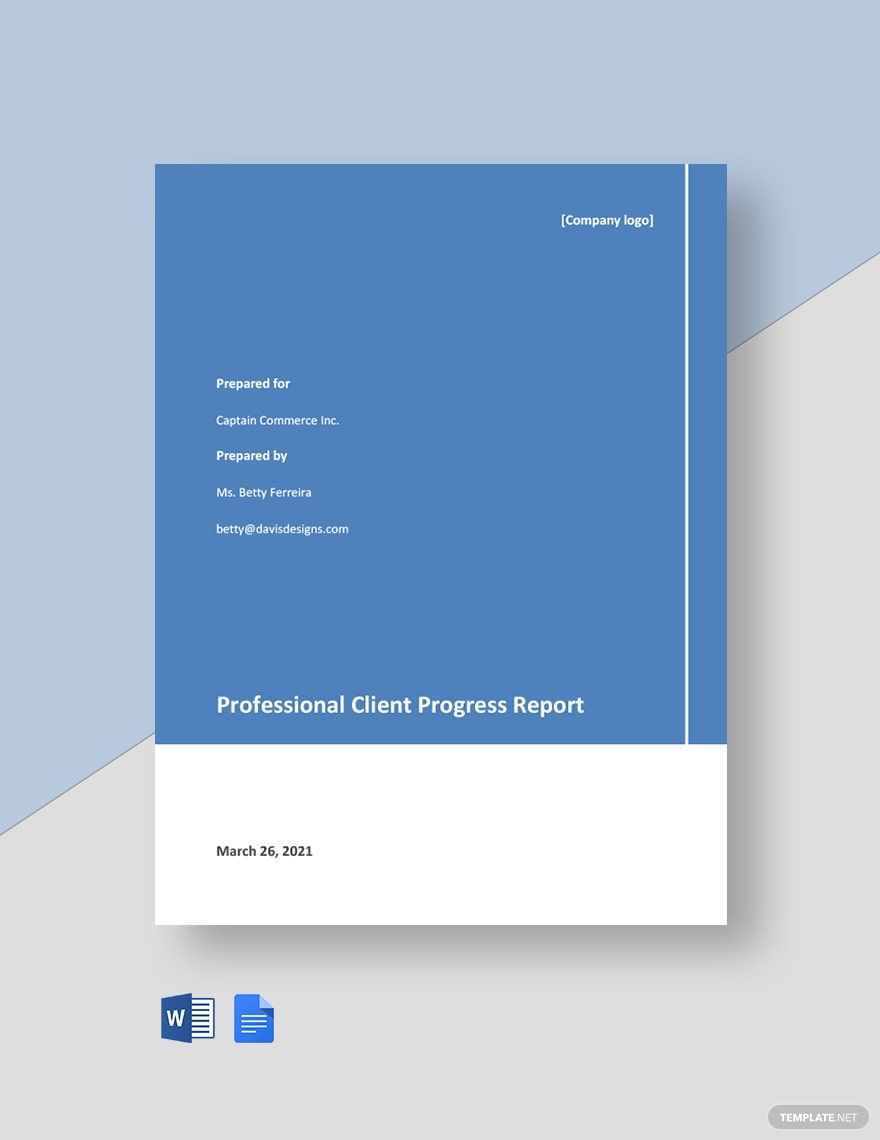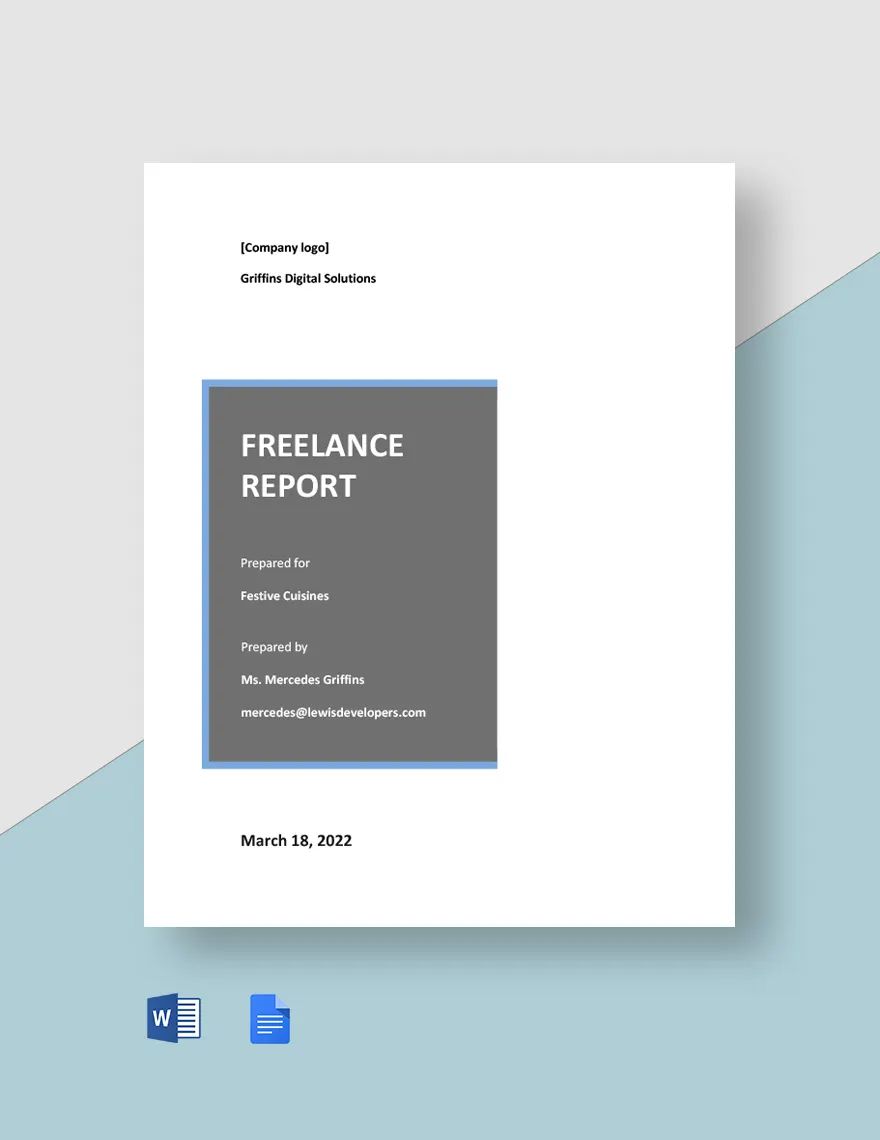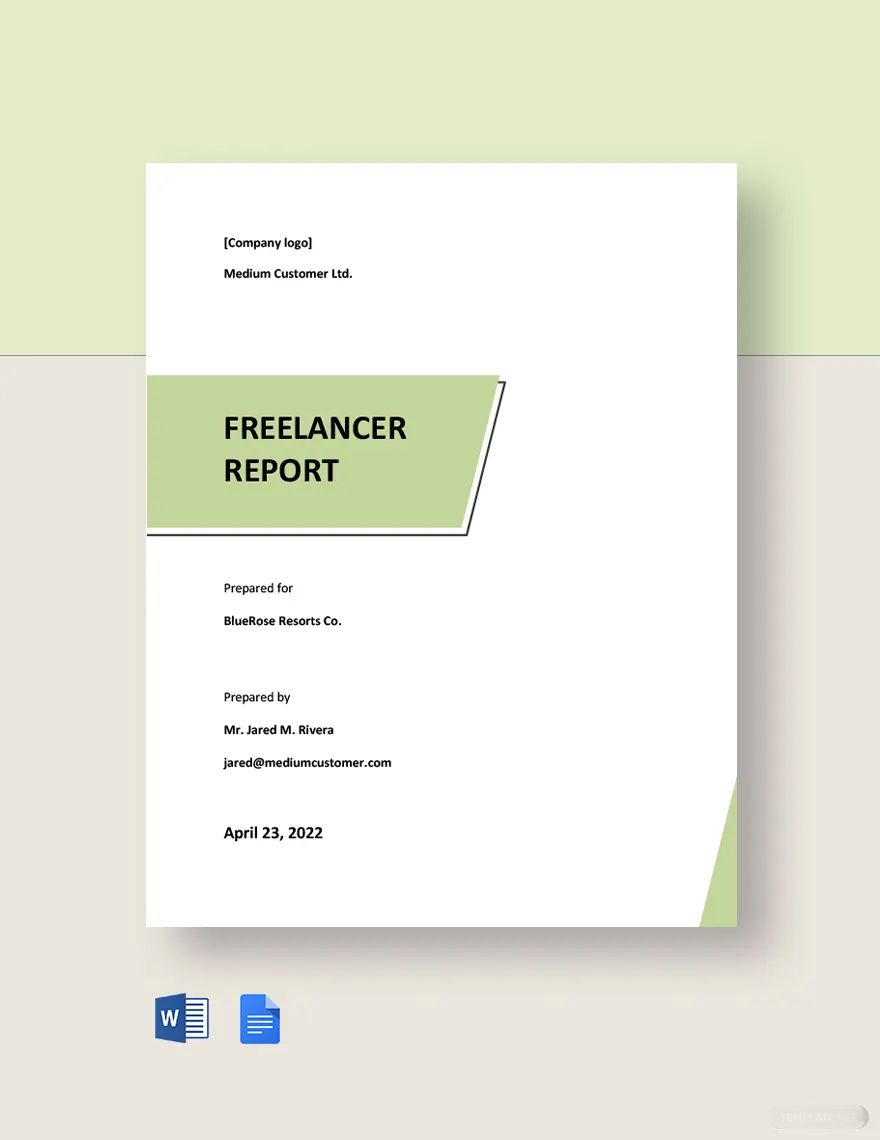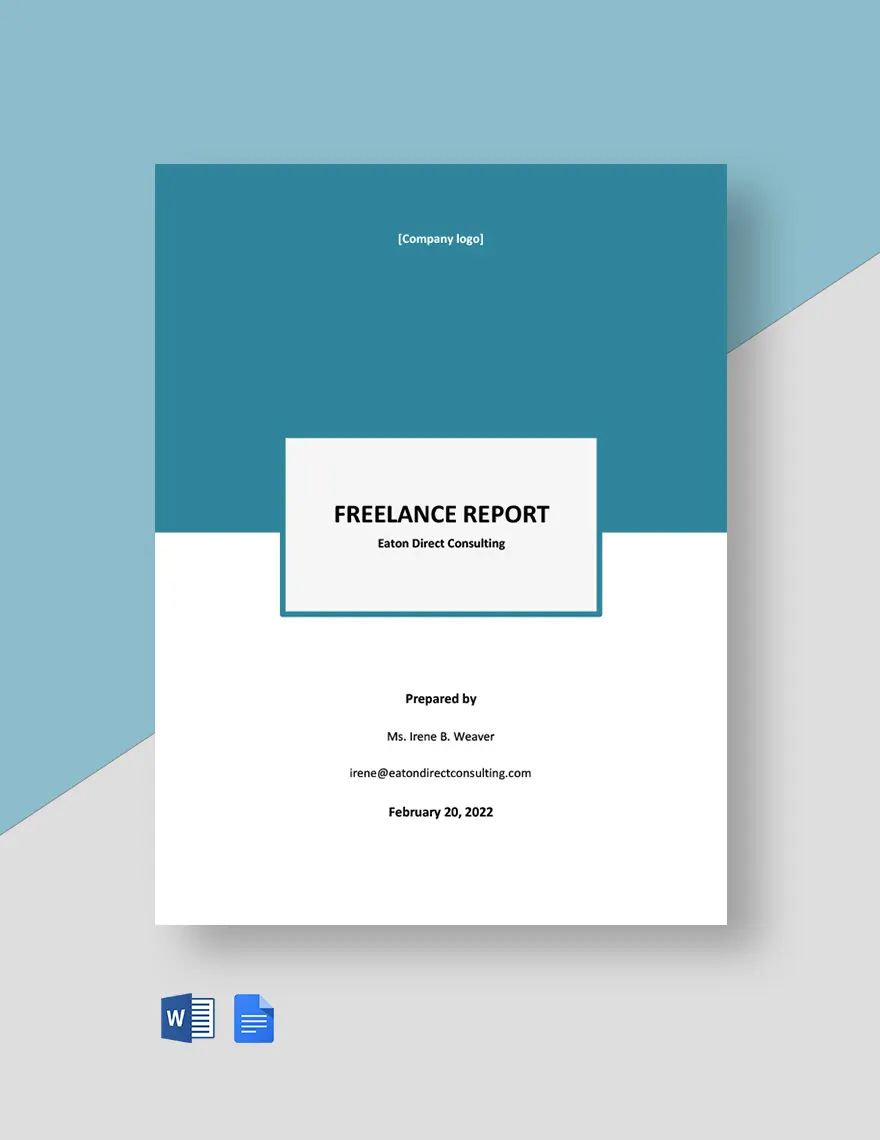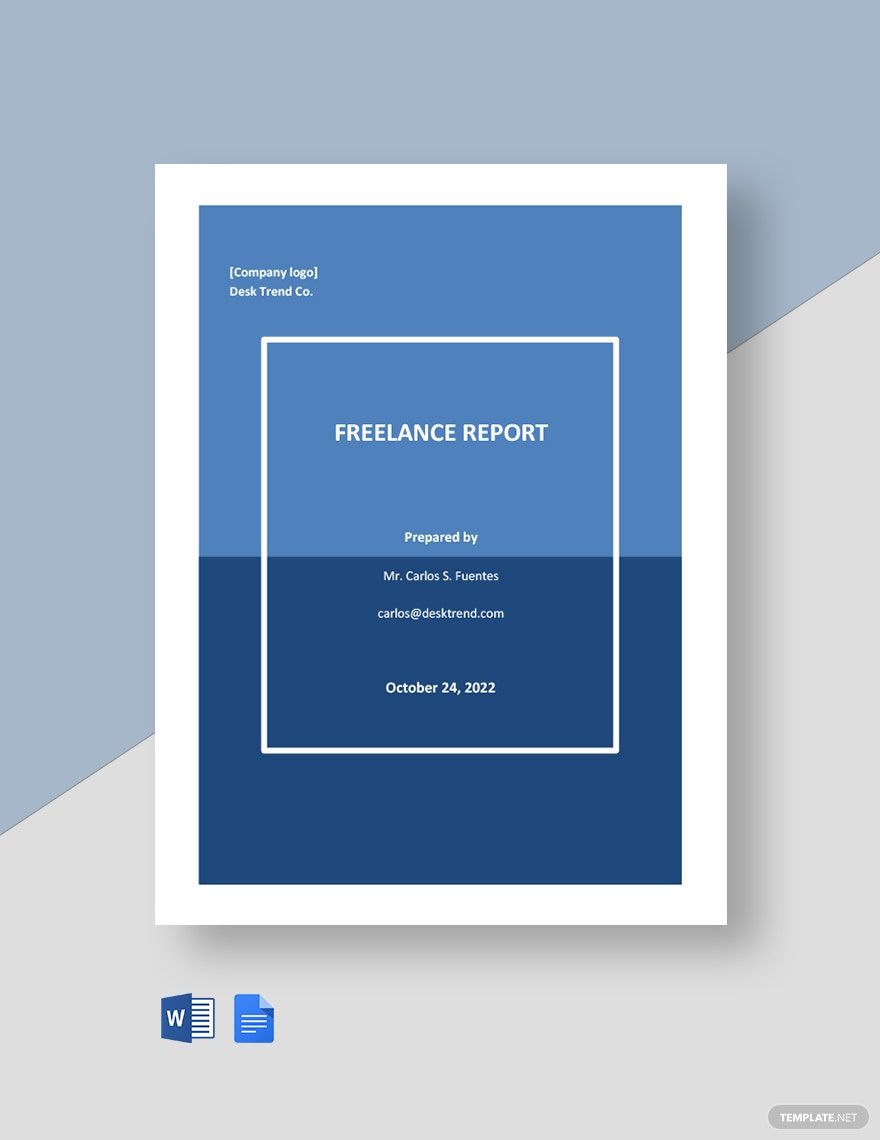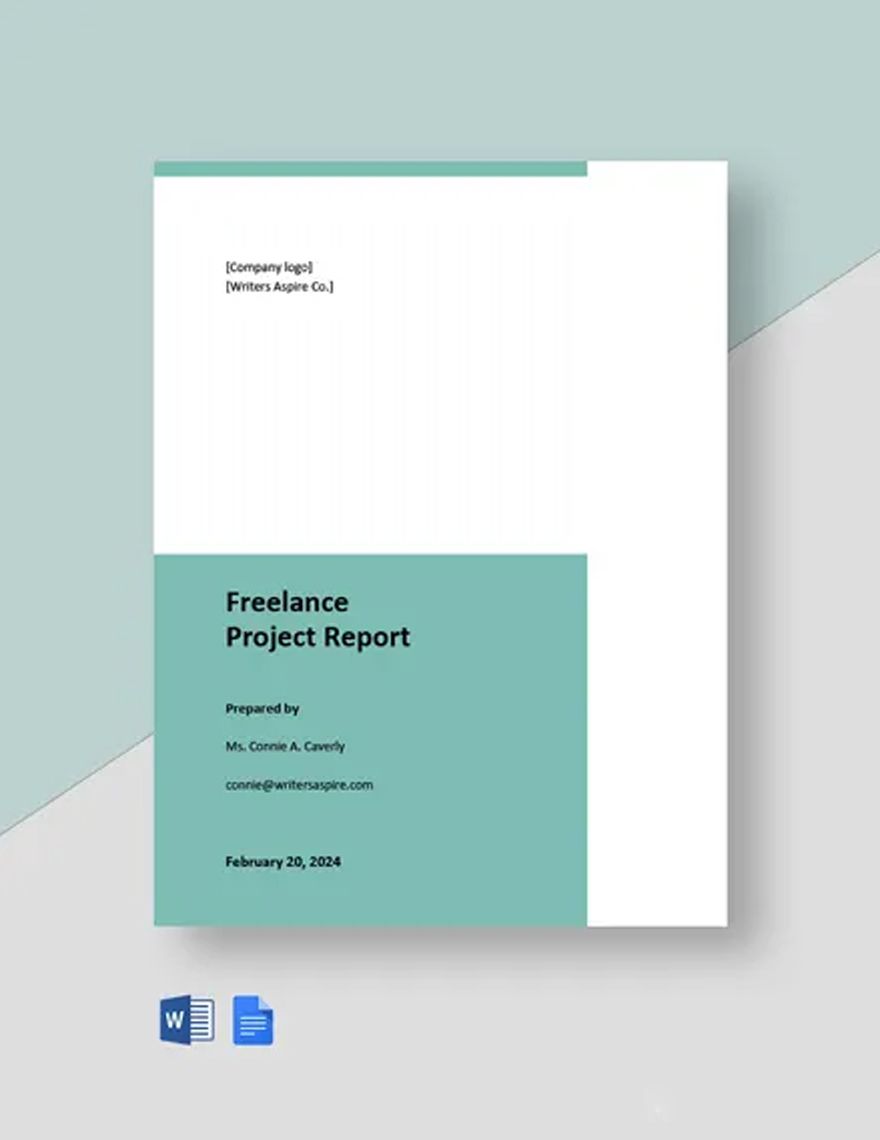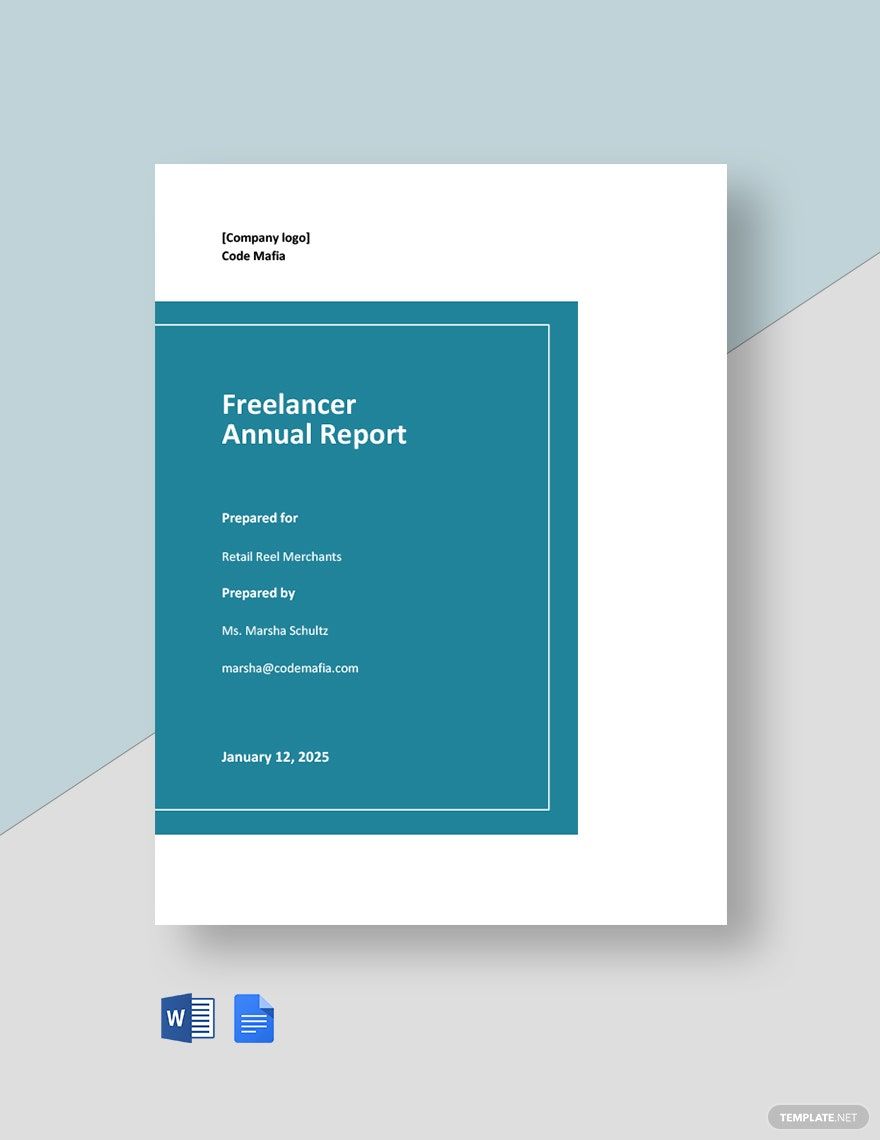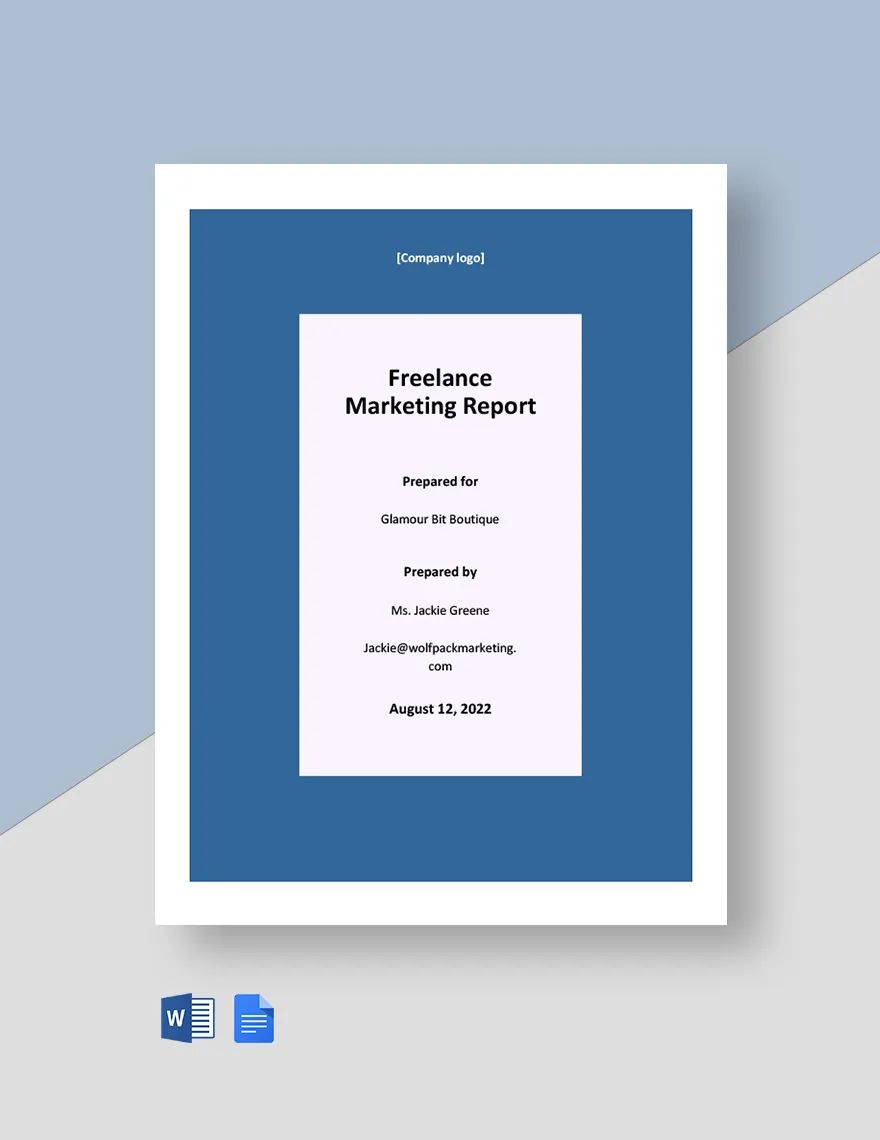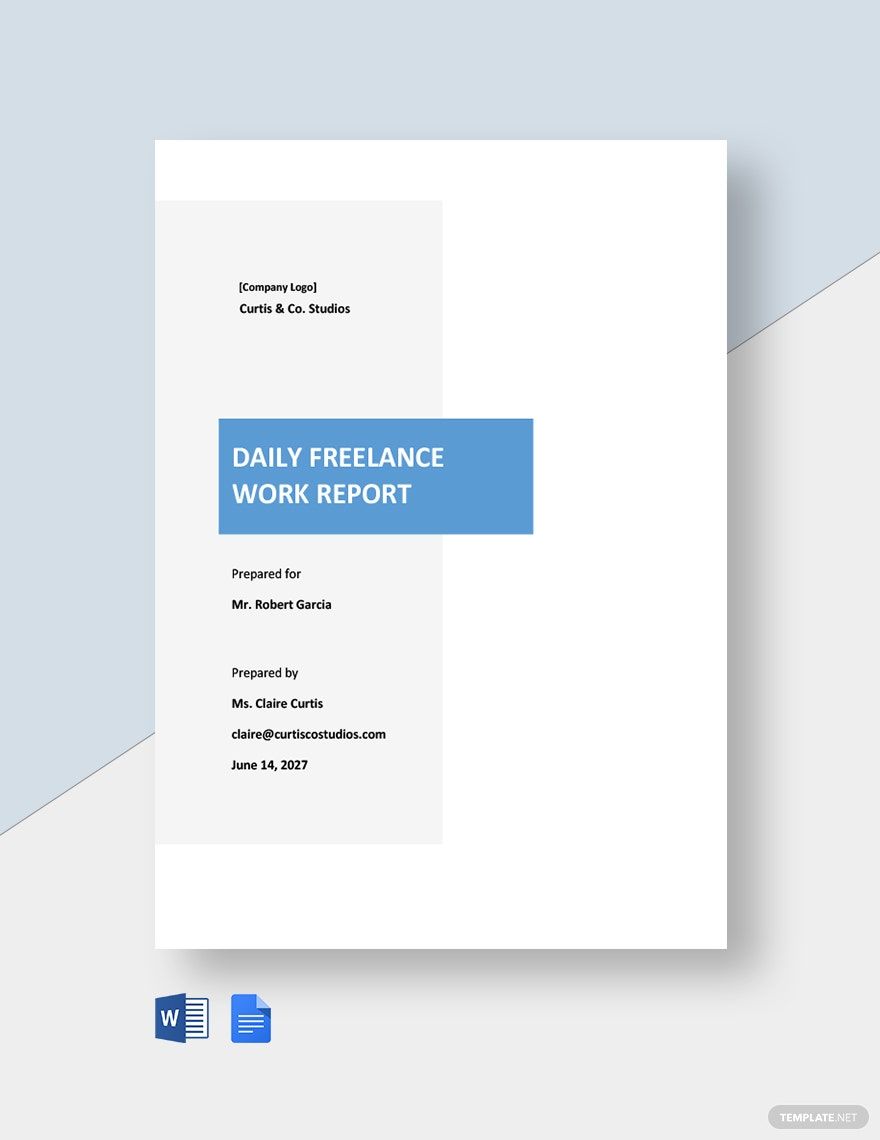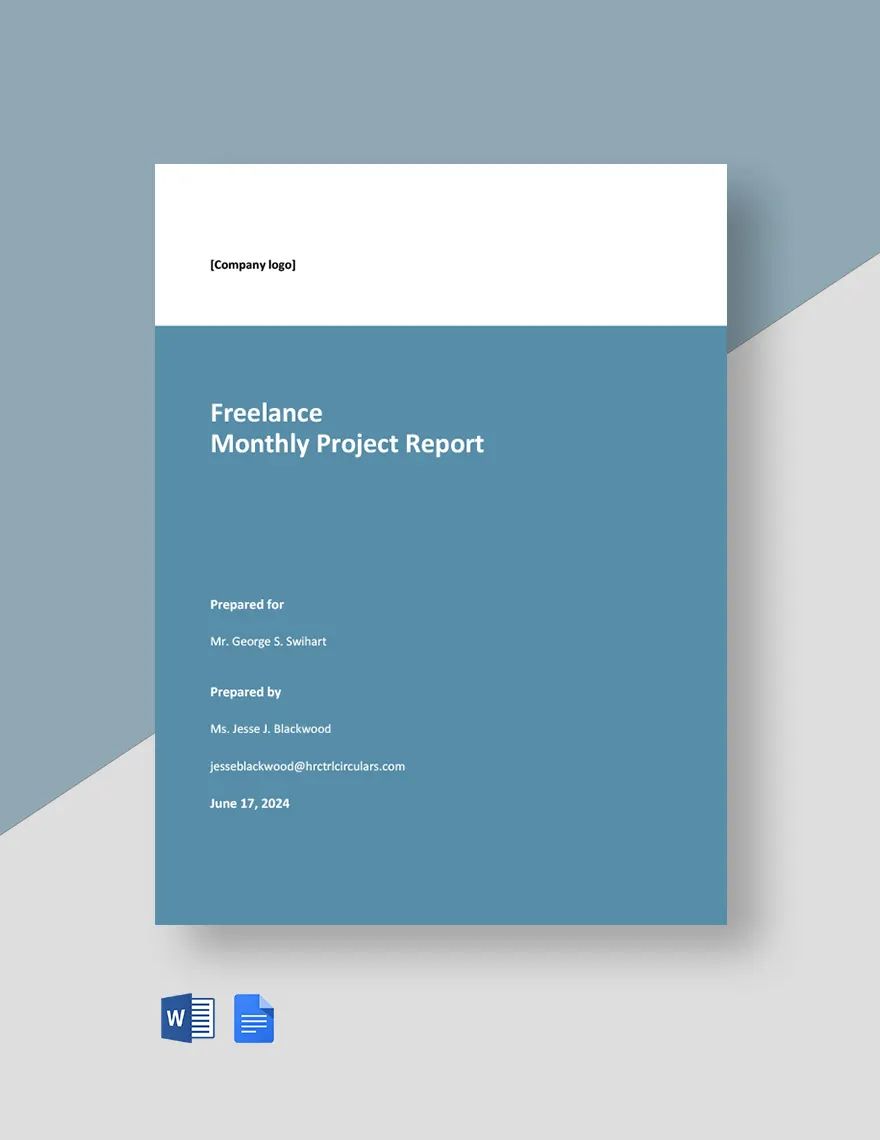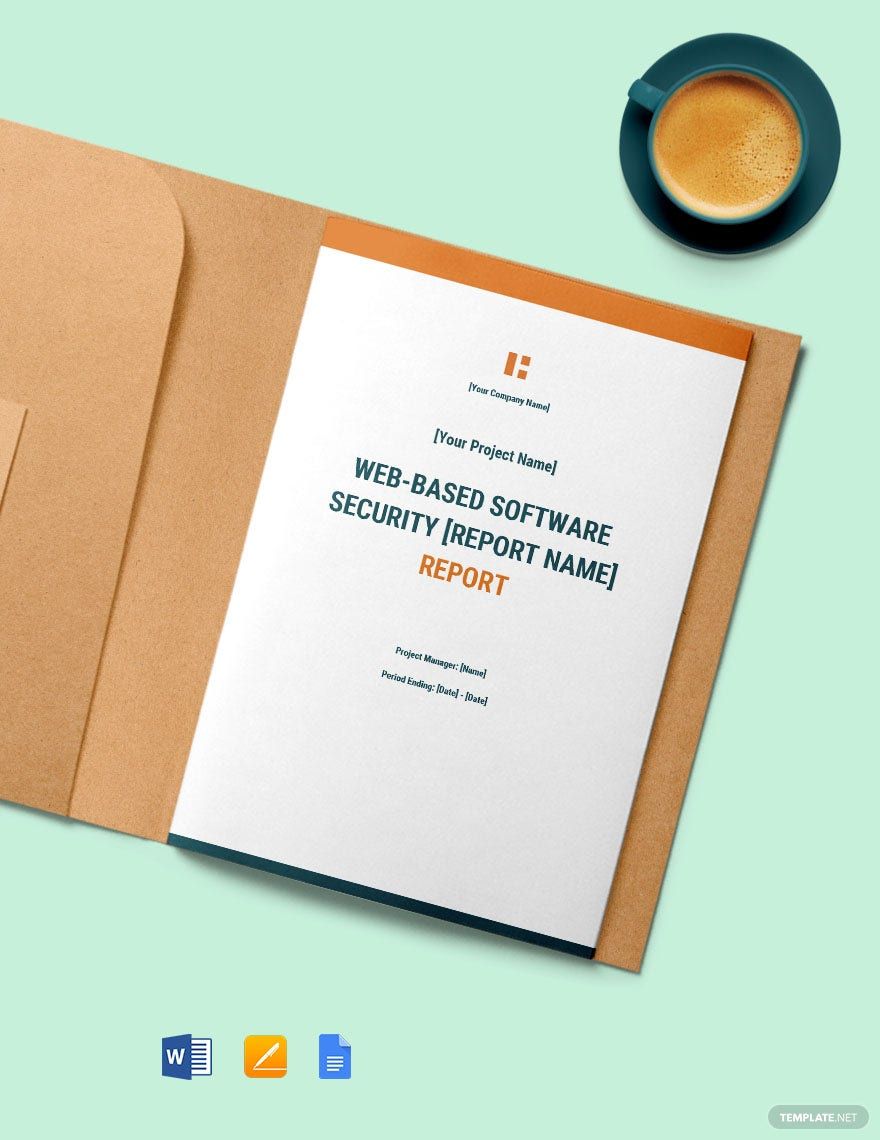If you are a freelancer, keep your manager or supervisor updated using our Freelancer Report Templates. Notify them about your daily work progress and target completion easily with our versatile templates that contain relevant and well-formatted content. Why make one from scratch when you are getting our 100% customizable samples in one click? Yes, they are all editable and printable. Since these ready-made products already come with original content, you’ll save a lot of time and effort using them. Subscribe and start downloading them now!
Freelancer Report Templates
Aside from a Timesheet Template, Get a Freelancer Report Template from Template.net for Free! Upwork Has Been Common and Your Profile Must Amaze Clients. The Pay Gap, Economic Impact, Workforce, Contest, Job, and Survey Will Be Properly Incorporated When Using These Templates. So Go Ahead and Use Our Templates!
- Freelance Letter
- Freelancer
- Freelancer Agreement
- Freelancer Budget
- Freelancer Business Card
- Freelancer Estimate
- Freelancer Flyer
- Freelancer ID Card
- Freelancer Letter
- Freelancer Order
- Freelancer Policy
- Freelancer Presentation
- Freelancer Proposal
- Freelancer Quotation
- Freelancer Receipt
- Freelancer Resume
- Freelancer Schedule
- Freelancer Sheet
- Basic Freelance
How to Write a Freelancer Report?
A freelancer report is a document that explains observations, activities, or summaries of works assigned or given to the freelancers. This report is a presentation completed works and is used to discuss the status of the works, showcase skills, and explain the freelancer’s income based on his or her hourly rates.
According to a survey on Upwork, 9 out of every 10 global freelancers are convinced that their career has not reached its best days yet. As freelancers aren’t working inside traditional offices, it doesn’t mean they have no one to report to. If you plan on or are currently freelancing, feel free to refer to our tips below if you need help in writing essential reports.
1. Identify the Focus of the Report
Before writing a project report, identify first its focus or objective. This focus refers to both the content of the report as well as the person who’ll be reading it. By doing so, you can appropriately tailor your content and how it should be conveyed to the reader.
2. Prepare a List of Ideas to Highlight
Instead of writing your report straight away, it’s best to have a guide that you can use as your reference. If writing a draft is too much, you can simply make a checklist of ideas to highlight in your report. Make sure the items on your list are relatable to your report’s focus.
3. Make Content on the Purpose
After coming up with an objective and a list of ideas, start writing your report. Regardless of how you intend to deliver your content, make sure to keep it centered on its purpose. In other words, keep your report relevant and consistent.
4. Ensure an Organized Flow of Ideas
Aside from keeping your status report relevant, keep its flow organized. The reason behind this is it helps readers to easily follow what you’re trying to tell them. You wouldn’t want your ideas to jump back and forth in the content, do you?
5. Use Concise and Engaging Language
As mentioned earlier, your work report should have a specific objective. In line with that, every sentence should convey a specific idea concisely. Each sentence should not exceed 20 words. Also, use active and engaging language to make your report sound convincing and objective.
Frequently Asked Questions
What are the different types of reports?
- Memorandums.
- Financial reports.
- Progress reports.
- Audit reports.
- Meeting minutes.
- Compliance reports.
- Feasibility reports.
- Justification reports.
Why are reports important?
Reports are important in businesses and organizations because they provide details on their current status. From these details, the business or organization can come up with ways to improve their marketing campaigns, budgeting methods, and decision-making processes.
What are some examples of reporting mistakes to avoid?
- Discussing too many topics at once.
- Not tackling what the audience needs to hear or know about.
- Not including concrete examples or evidence.
- Failing to fix or revise content errors.
What are the advantages of reporting?
- Reporting conveys reliable information to the employees.
- Reporting initiates internal communication between you and your manager.
- Reporting keeps audiences up to date with the organization’s current status.
- Reporting helps the organization to make plans and decisions.
What can the United States expect from freelancers in the near future?
According to Forbes, the United States should expect that around 50% of the country’s workforce will go into freelance working by 2027.
